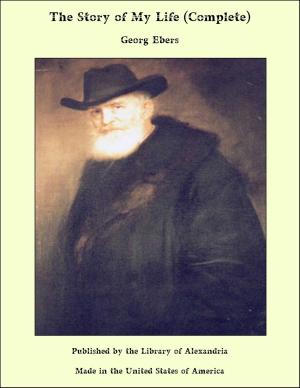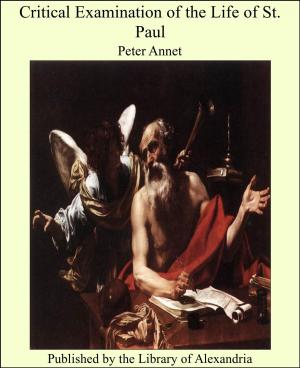Passages from the Life of a Philosopher
Nonfiction, Religion & Spirituality, New Age, History, Fiction & Literature| Author: | Charles Babbage | ISBN: | 9781465623263 |
| Publisher: | Library of Alexandria | Publication: | March 8, 2015 |
| Imprint: | Language: | English |
| Author: | Charles Babbage |
| ISBN: | 9781465623263 |
| Publisher: | Library of Alexandria |
| Publication: | March 8, 2015 |
| Imprint: | |
| Language: | English |
WHAT is there in a name? It is merely an empty basket, until you put something into it. My earliest visit to the Continent taught me the value of such a basket, filled with the name of my venerable friend the first Herschel, ere yet my younger friend his son, had adorned his distinguished patronymic with the additional laurels of his own well-earned fame. The inheritance of a celebrated name is not, however, without its disadvantages. This truth I never found more fully appreciated, nor more admirably expressed, than in a conversation with the son of Filangieri, the author of the celebrated Treatise on Legislation, with whom I became acquainted at Naples, and in whose company I visited several of the most interesting institutions of that capital. In the course of one of our drives, I alluded to the advantages of inheriting a distinguished name, as in the case of the second Herschel. His remark was, “For my own part, I think it a great disadvantage. Such a man must feel in the position of one inheriting a vast estate, so deeply mortgaged that he can never hope, by any efforts of his own, to redeem it.” Without reverting to the philosophic, but unromantic, views of our origin taken by Darwin, I shall pass over the long history of our progress from a monad up to man, and commence tracing my ancestry as the world generally do: namely, as soon as there is the slightest ground for conjecture. Although I have contended for the Mosaic date of the creation of man as long as I decently could, and have even endeavoured to explain away some of the facts relied upon to prove man’s long anterior origin; yet I must admit that the continual accumulation of evidence probably will, at last, compel me to acknowledge that, in this single instance, the writings of Moses may have been misapprehended.
WHAT is there in a name? It is merely an empty basket, until you put something into it. My earliest visit to the Continent taught me the value of such a basket, filled with the name of my venerable friend the first Herschel, ere yet my younger friend his son, had adorned his distinguished patronymic with the additional laurels of his own well-earned fame. The inheritance of a celebrated name is not, however, without its disadvantages. This truth I never found more fully appreciated, nor more admirably expressed, than in a conversation with the son of Filangieri, the author of the celebrated Treatise on Legislation, with whom I became acquainted at Naples, and in whose company I visited several of the most interesting institutions of that capital. In the course of one of our drives, I alluded to the advantages of inheriting a distinguished name, as in the case of the second Herschel. His remark was, “For my own part, I think it a great disadvantage. Such a man must feel in the position of one inheriting a vast estate, so deeply mortgaged that he can never hope, by any efforts of his own, to redeem it.” Without reverting to the philosophic, but unromantic, views of our origin taken by Darwin, I shall pass over the long history of our progress from a monad up to man, and commence tracing my ancestry as the world generally do: namely, as soon as there is the slightest ground for conjecture. Although I have contended for the Mosaic date of the creation of man as long as I decently could, and have even endeavoured to explain away some of the facts relied upon to prove man’s long anterior origin; yet I must admit that the continual accumulation of evidence probably will, at last, compel me to acknowledge that, in this single instance, the writings of Moses may have been misapprehended.















